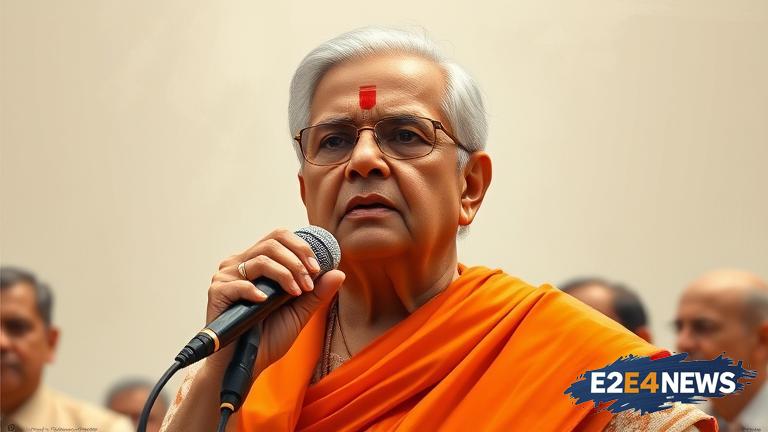In a recent statement, Rashtriya Swayamsevak Sangh (RSS) Chief Mohan Bhagwat sparked a debate on women’s empowerment in India by saying that it is foolish for men to claim that they can uplift women. Bhagwat’s statement has been met with both praise and criticism from various quarters. According to Bhagwat, women are capable of uplifting themselves and do not need men to do it for them. He emphasized the importance of women’s education and economic independence in achieving this goal. Bhagwat’s statement is being seen as a significant shift in the RSS’s stance on women’s empowerment. The RSS has traditionally been seen as a patriarchal organization, and Bhagwat’s statement is being hailed as a progressive move. However, some critics have argued that Bhagwat’s statement is nothing more than a publicity stunt, and that the RSS’s actions do not match its words. Despite the criticism, Bhagwat’s statement has sparked a much-needed debate on women’s empowerment in India. Women’s rights activists have long argued that women’s empowerment is not just about education and economic independence, but also about challenging patriarchal norms and stereotypes. Bhagwat’s statement has been welcomed by many women’s rights activists, who see it as a step in the right direction. However, they also caution that much more needs to be done to achieve true women’s empowerment in India. The Indian government has also been criticized for its handling of women’s empowerment issues, including the recent surge in violence against women. Bhagwat’s statement has put the spotlight back on the issue of women’s empowerment, and it remains to be seen how the RSS and the Indian government will follow up on their commitments. The debate sparked by Bhagwat’s statement is a reminder that women’s empowerment is a complex and multifaceted issue that requires a sustained and collective effort to address. It is also a reminder that women’s empowerment is not just a women’s issue, but a societal issue that requires the involvement and commitment of men and women alike. Furthermore, Bhagwat’s statement highlights the importance of education and economic independence in achieving women’s empowerment. Education is key to empowering women, as it enables them to make informed decisions about their lives and to participate fully in society. Economic independence is also crucial, as it enables women to be financially self-sufficient and to make choices about their lives without being dependent on others. In addition, Bhagwat’s statement emphasizes the need to challenge patriarchal norms and stereotypes that perpetuate gender inequality. This requires a fundamental shift in societal attitudes and behaviors, and a commitment to promoting gender equality and justice. Overall, Bhagwat’s statement is a significant development in the debate on women’s empowerment in India, and it highlights the need for sustained and collective action to achieve true women’s empowerment.
